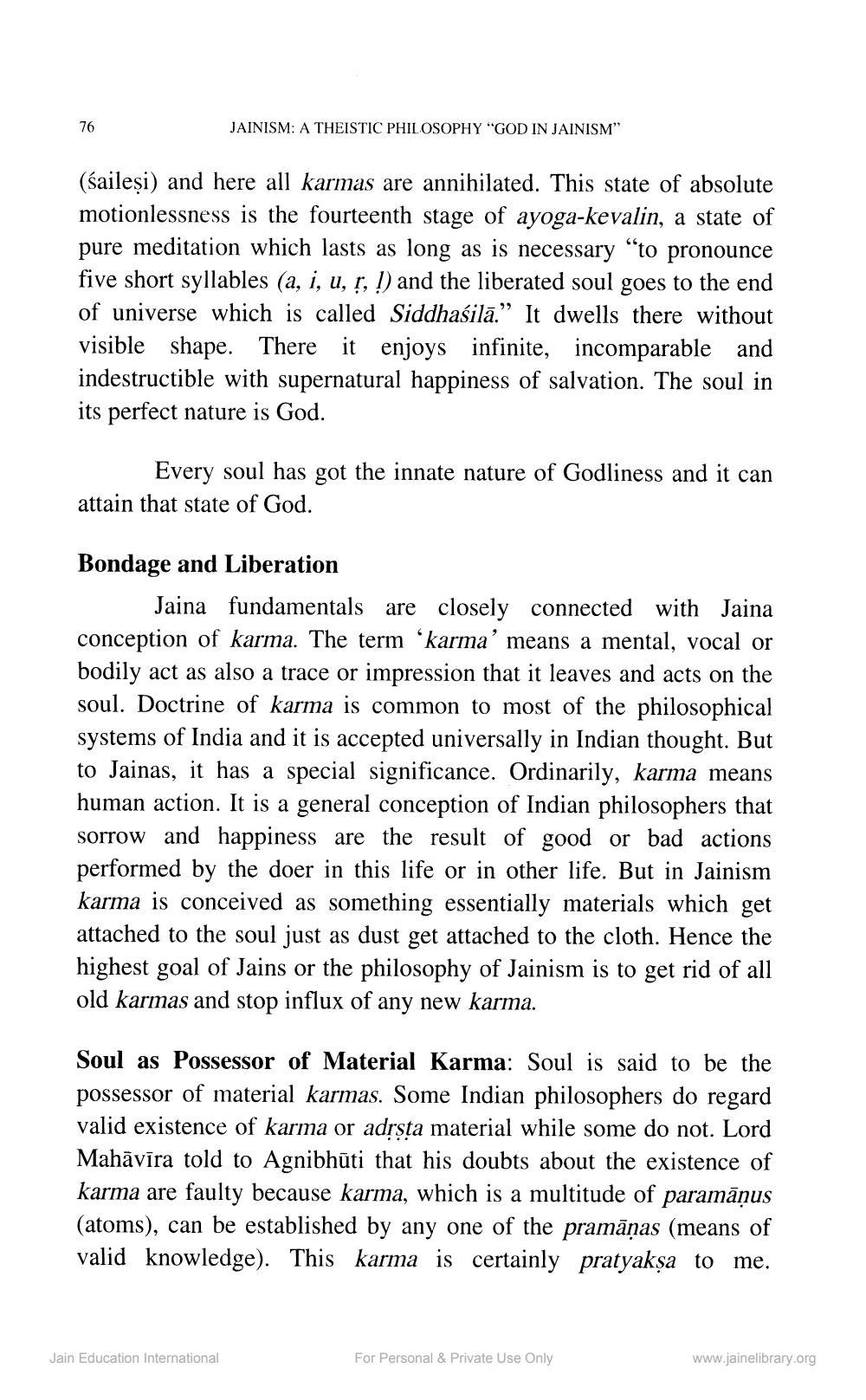________________
JAINISM: A THEISTIC PHILOSOPHY "GOD IN JAINISM"
(śailesi) and here all karmas are annihilated. This state of absolute motionlessness is the fourteenth stage of ayoga-kevalin, a state of pure meditation which lasts as long as is necessary “to pronounce five short syllables (a, i, u, ?, ?) and the liberated soul goes to the end of universe which is called Siddhasilā.” It dwells there without visible shape. There it enjoys infinite, incomparable and indestructible with supernatural happiness of salvation. The soul in its perfect nature is God.
Every soul has got the innate nature of Godliness and it can attain that state of God.
Bondage and Liberation
Jaina fundamentals are closely connected with Jaina conception of karma. The term “karma' means a mental, vocal or bodily act as also a trace or impression that it leaves and acts on the soul. Doctrine of karma is common to most of the philosophical systems of India and it is accepted universally in Indian thought. But to Jainas, it has a special significance. Ordinarily, karma means human action. It is a general conception of Indian philosophers that sorrow and happiness are the result of good or bad actions performed by the doer in this life or in other life. But in Jainism karma is conceived as something essentially materials which get attached to the soul just as dust get attached to the cloth. Hence the highest goal of Jains or the philosophy of Jainism is to get rid of all old karmas and stop influx of any new karma.
Soul as Possessor of Material Karma: Soul is said to be the possessor of material karmas. Some Indian philosophers do regard valid existence of karma or adrsta material while some do not. Lord Mahāvīra told to Agnibhūti that his doubts about the existence of karma are faulty because karma, which is a multitude of paramāņus (atoms), can be established by any one of the pramāņas (means of valid knowledge). This karma is certainly pratyakșa to me.
Jain Education International
For Personal & Private Use Only
www.jainelibrary.org




